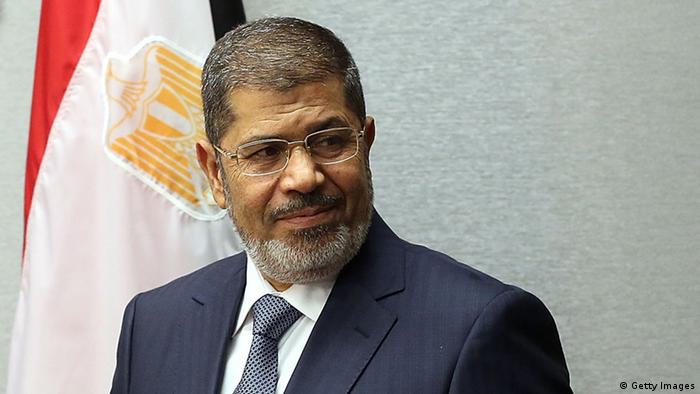Egyptian President Mohammed Morsi has decreed constitutional changes granting himself far-reaching powers. He has also fired the country's chief prosecutor, a move likely to cause further conflict with the judiciary.
The Egyptian leader on Thursday decreed, among other constitutional amendments, that all decisions he had taken since taking office in June could not be appealed in court or by any other authority.
A constitutional declaration read out on television by spokesman Yasser Ali stated that Morsi "can issue any decision or measure to protect the revolution."
"The constitutional declarations, decisions and laws issued by the president are final and not subject to appeal," the declaration continued.
Morsi also granted immunity both to the constituent assembly drafting a new Egyptian constitution and to the upper chamber of parliament from any possible court decisions to dissolve them. Both bodies are dominated by Islamist allies of the president.
Egypt's Supreme Constitutional Court is expected to rule on the legality of the assembly in December.
Several members of the assembly have recently withdrawn from it in protest at what they have said were attempts by Islamists to fashion the constitution to their own ends.
Tense relations
Morsi's relations with the judiciary have been strained since his aborted attempt to reinstate the Islamist-controlled parliament after it was invalidated by the Supreme Court in June.
In another move that could aggravate these tensions, Morsi also sacked Prosecutor-General Abdel Meguid Mahmud, replacing him with Talaat Ibrahim. Morsi failed to dismiss Mahmud last month.
The president also ordered new investigations into the death of protesters killed in a popular revolt against the regime of Hosni Mubarak more than a year ago.
It is not clear whether the decision will affect the case of Mubarak, who is serving a life sentence in prison for complicity in the killing of more than 800 protesters.
Mohamed ElBaradei, a leading opposition figure and Nobel laureate, has criticized the constitutional amendments.
"Morsi today usurped all state powers and appointed himself Egypt's new pharaoh. A major blow to the revolution that could have dire consequences," ElBaradei wrote on his Twitter account on Thursday.
tj/lw (dpa, AFP, AP) dw de

Comments